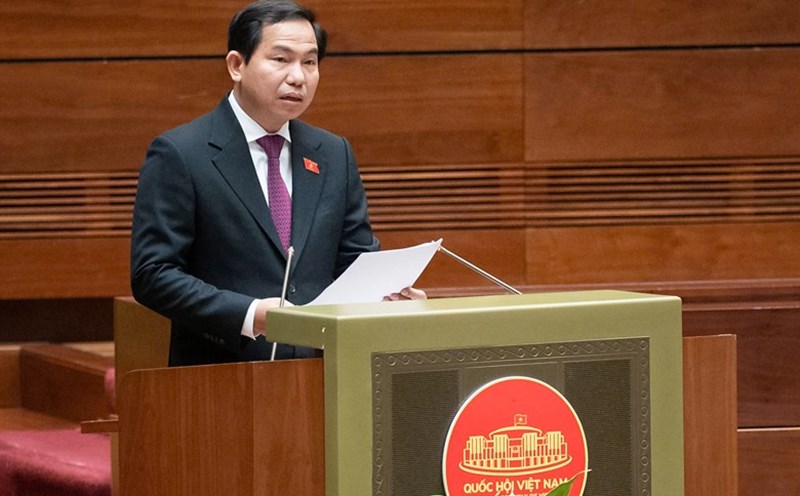On November 23, the National Assembly listened to Deputy Prime Minister Le Thanh Long present a report on the draft Law on Digital Technology Industry.
According to the Deputy Prime Minister, developing the digital technology industry into an economic sector that contributes greatly to the country's economy; creating the most favorable environment to nurture and develop digital technology enterprises.
Developing the digital technology industry with a focus on Vietnamese digital technology enterprises, gradually shifting from assembly and processing to innovation, design, integration, production, and mastery of core technology in Vietnam; contributing to building a digital government, a driving force for the development of the digital economy and digital society.
Pursuant to the Government's direction, based on the actual situation, the Ministry of Information and Communications proposes to supplement the content on digital assets, AI and adjust the content of "semiconductor microchip" to "semiconductor" as follows:
Regarding the semiconductor industry, it is an important sub-sector of the digital technology industry, relatively complete, highly physical, and large enough in scale.
The Draft Law stipulates the Chapter "Semiconductor Industry" instead of "Semiconductor IC" to ensure comprehensiveness, comprehensiveness, and completeness of all stages of semiconductor industry activities, consistent with the goals and management objects and in sync with the Semiconductor Industry Development Strategy.
The draft assigns the Government to develop separate strategies and policies for development in each period.
Regarding artificial intelligence (AI), which is one of the most core digital technologies. The Law provides definitions, management and development principles, and assigns the Government to specify this content in detail.
The draft law outlines principles for AI management and development. AI that serves human well-being and prosperity must ensure transparency and explainability, accountability, fairness and non-discrimination, respect for ethical values and human empowerment, privacy protection, inclusive access, security and confidentiality, controllability, risk-based management, responsible innovation, and encourage international cooperation.
As for digital assets, crypto assets, digital assets are intangible assets, expressed in the form of digital data, created, issued, stored, transferred, authenticated by digital technology in the electronic environment and protected by law as property rights in accordance with the provisions of civil law, intellectual property and other relevant laws. Crypto assets are a type of digital assets.
According to the Deputy Prime Minister, digital asset management requires a close combination of management processes, technology and people; ensuring integrity and authenticity; ensuring information safety and security, and risk management.
Ensure transparency and accountability; transferability, compatibility with other systems; lifecycle management; intellectual property protection, legal compliance and support for sustainable development.
The Government is assigned to specify the types and management of digital assets and organizations providing digital asset services depending on practical conditions; measures to ensure the legitimate rights and interests of organizations and individuals; and to prevent, stop, limit and handle risks related to digital assets.











